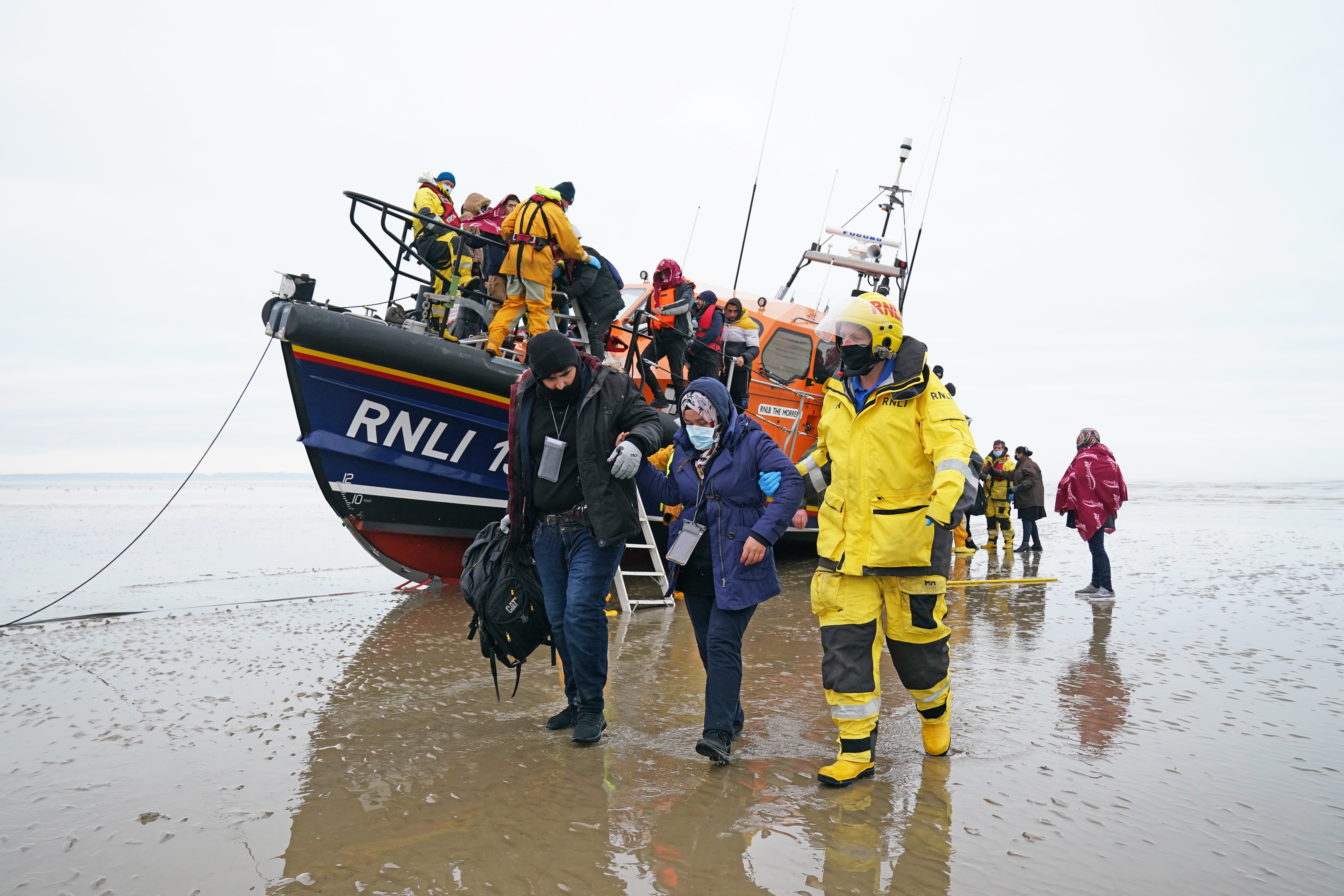British and French officials face legal action over ‘failure to act’ during mass drowning in Channel
Charity lodges complaint to French courts to ‘shed light on circumstances’ of tragedy in which 27 perished

British and French officials are facing legal action over their “failure to act” when a boat started sinking in the Channel last month, ultimately leading to the deaths of 27 people.
A charity supporting displaced people in northern France lodged a complaint to the French courts on Friday accusing the director of the UK coastguards, the French maritime chief for the Channel and the director of the French regional coastguard of “involuntary manslaughter” and “failure to help people in need”.
Twenty-seven bodies recovered from the sea when a boat capsized in the waters off Calais on 24 November, among them at least 17 men and seven women – aged between 19 and 46 – and three children.
The Paris prosecutor Laure Beccuau confirmed last week that the majority of the deceased were from Iraqi Kurdistan, including a seven-year-old girl, a teenager and four women, while other known victims came from countries including Afghanistan, Egypt, Ethiopia, Iran and Somalia.
According to testimony from the two only survivors of the tragedy, relatives of deceased people and people who made the crossing on the same day, distress calls were reported to the French and English rescue services before the bodies were discovered, Utopia 56 said.
The charity said it hoped that the charges would trigger investigations that would “shed light on the circumstances of this shipwreck”, adding: “Transparency and truth are due to the victims and their families.”
It said the UK authorities did not appear to have opened any investigation into the incident and that the probe being conducted by the French government “seem[ed] to focus primarily on the role of smugglers”.
“We must learn the lessons and consequences, including on the criminal level of the sinking on 24 November 2021 so that these tragedies do not happen again,” it said in a statement.
Charlotte Kwantes, national coordinator of Utopia 56, said: “As citizens, the only way for us to answer the constant inhuman and unlawful practices of the states over displaced people is to use the law. So we do.”
Meanwhile, UK law firm Duncan Lewis has sent pre-action correspondence to the UK Home Office, on behalf of one of the confirmed victims, asking it to launch a public inquiry into the tragedy.
Maria Thomas, solicitor at the firm, said: “Independent expert evidence obtained on behalf of our client indicates that there may have been serious failings that could have contributed to the significant loss of life.”
It comes after a Home Office official acknowledged that people on board the boat may have called UK authorities for help when they realised their inflatable dinghy was deflating.
Asked about the incident earlier this month by the Joint Committee on Human Rights, clandestine Channel threat commander Daniel O’Mahoney said: “I can’t tell you with any certainty whether we definitely received a call from that boat or not ... if the people from that boat had called the UK authorities, I can tell you that we definitely responded to that call.”
The UK Maritime and Coastguard Agency said it was not appropriate to comment on the specifics of the legal action.
It said that on 24 November, Her Majesty’s Coastguard received over 90 alerts from the English Channel area including 999 emergency calls, all of which were “answered, assessed and acted upon, including the deployment of search and rescue resources where appropriate”.
“We always have and always will respond to anyone in distress, as we did that day,” it added.
The French Maritime Prefect of the Channel and the North Sea said France’s investigation into the “dramatic event” was “still ongoing”.
“As a reminder, no worrying situation at sea is left unresolved, regardless of where the call comes from, especially since it concerns human lives. When sea rescue centres, both French and British, receive a distress call, they coordinate on the means to be deployed to help people in difficulty,” it added.
“On 24 November, 106 people were saved by the means which contribute to the action of the state at sea during 3 different operations. In addition, since the start of 2021, more than 8,200 people have been rescued at sea in the Strait of Pas-de-Calais.”
Join our commenting forum
Join thought-provoking conversations, follow other Independent readers and see their replies
Comments
Bookmark popover
Removed from bookmarks